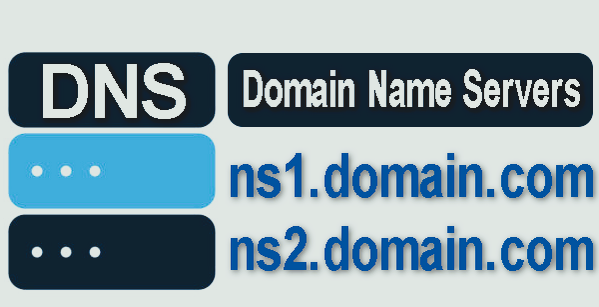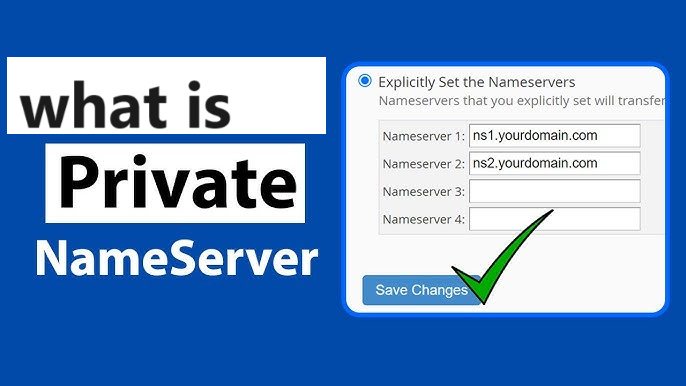Private nameservers, also known as custom name servers or vanity name servers, are DNS servers that are customized to reflect your own domain name rather than the domain name of your hosting provider. Instead of using your hosting provider’s default name servers (which might look like ns1.hostingprovider.com and ns2.hostingprovider.com), you can set up private name servers that use your own domain name (such as ns1.yourdomain.com and ns2.yourdomain.com).

Setting up private name servers can be beneficial for branding purposes and can give your hosting setup a more professional appearance. It also allows you to maintain consistent branding across your website and hosting services.
Table of Contents
What are Nameservers?
Nameservers are a critical component of the Domain Name System (DNS), which acts as a directory for the internet, translating human-readable domain names into machine-readable IP addresses. When you type a website address (e.g., www.example.com) into your web browser, the browser needs to know the corresponding IP address to connect to the website’s server. This is where nameservers come into play.
Nameservers are specialized servers responsible for storing DNS records for a domain. These records include information such as IP addresses associated with domain names, mail server addresses, and other DNS-related data. When someone accesses a domain name, their device sends a DNS query to the nameservers associated with that domain, requesting the corresponding IP address.

Nameservers are typically provided by internet service providers (ISPs), domain registrars, or third-party DNS service providers. Each domain must have at least two nameservers assigned to it for redundancy and fault tolerance. These nameservers are known as primary (master) and secondary (slave) nameservers.
When a nameserver receives a DNS query for a domain, it looks up the requested information in its DNS records. If it has the information cached locally, it returns the response directly. Otherwise, it may need to query other nameservers on the internet to resolve the requested domain.
What are Private Nameservers?
Private nameservers, also known as custom nameservers or vanity nameservers, are nameservers that use your own domain name instead of the domain name provided by your hosting provider or registrar. Instead of using nameservers provided by a third-party service, you can create and use your own nameservers for your domain.
For example, instead of using nameservers like ns1.yourhostingprovider.com and ns2.yourhostingprovider.com, you can set up nameservers like ns1.yourdomain.com and ns2.yourdomain.com.

Setting up private nameservers typically involves configuring the DNS records for your domain to point to specific IP addresses assigned to your own nameservers. This process may vary depending on your hosting provider or registrar, but it generally involves accessing your domain management interface and updating the nameserver records.
Private Nameserver Benefits

- Branding: Using your own domain name for nameservers can help reinforce your brand identity and make your hosting services appear more professional.
- Control: Setting up private nameservers gives you more control over your domain’s DNS configuration. You can manage the DNS records for your domain directly without relying on third-party nameservers.
- Flexibility: Private nameservers allow you to easily switch hosting providers or change server configurations without needing to update nameserver settings for all your domains.
- Security: Private nameservers can enhance security by reducing the visibility of the hosting infrastructure you’re using. This can make it harder for potential attackers to target your servers directly.
To set up private name servers, you typically need to do the following:

- Register your custom name servers with your domain registrar.
- Configure the DNS records for your custom name servers to point to your server’s IP addresses.
- Update the name server settings for your domain to use your custom name servers.
Once configured, any domain that you host on your server can use your private name servers for DNS resolution.
It’s worth noting that setting up private name servers requires some technical knowledge, and you should ensure that you fully understand DNS configuration before attempting to set them up. Additionally, some hosting providers may have specific requirements or restrictions regarding the use of private name servers.

